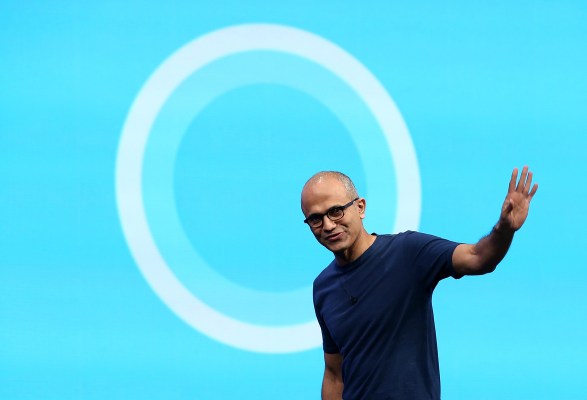

Today Microsoft reported its fiscal 2020 second quarter (calendar Q4 2019) results, including revenue of $36.9 billion (up 14%), net income of $11.6 billion (up 38%) and diluted earnings per share of $1.51.
Investors had expected the company to report profit of $1.32 per share off revenue of $35.67 billion. The street had anticipated net income of $10.12 billion in net income, as well. The company’s stock is up around 2% in after-hours trading, following the company’s earnings release.
All that’s just fine. But, what about cloud — how did Microsoft do with Azure, Office 365 and the rest of the products that are expected to carry Redmond into the future? Here you go:
- Office 365 Commercial revenue grew 27%, compared to its year-ago result
- Azure grew 62%, compared to its year-ago result
- “Office Consumer products and cloud services” grew by 19%, compared to their year-ago result
- Dynamics 365 grew 42%, compared to its year-ago result
All the above figures are GAAP results, and are therefore not adjusted for currency fluctuations. On a so-called “constant currency” basis, Azure grew by a slightly faster 64%.
In addition to those results, LinkedIn, a somewhat recent Microsoft property, grew 24% compared to its year-ago results, while Surface grew in single-digit percentage terms, and Xbox’s digital products slipped by 11% on a year-over-year basis. (Microsoft had stressed early on that LinkedIn’s growth rate was a key priority.)
Gisting all of that quickly as we continue to understand the company’s new results, it appears that Microsoft’s cloud transition continued apace, with investors bidding up its equity modest after-hours in light of the results. Bear in mind that Microsoft’s shares have been on a tear lately, with the company’s valuation cresting the $1.28 trillion mark as we finish this post.
Apple, another of the technology giants, also saw its shares advance modestly after reporting earnings yesterday. This is a crowded week for tech results, which, at the top end so far, have gone well.
What about Windows?
Microsoft’s earnings are a stable affair, given its girth that stretches from consumer hardware, software, gaming and operating systems, to enterprise tech to sales tooling to venture capital and more. But one product that has always deserves a minute is Windows, Microsoft’s well-known operating system.
Notably in the quarter, the Windows business was good, with Windows OEM revenue rising 18%. Even better, “Windows Commercial products and cloud services” rose 25%. It is true that Microsoft’s OEM business (selling the OS to hardware shops that make PCs) likely had a Windows 7 end-of-life tailwind, but all the same, the numbers were good.
Or at least better than I’d hazard anyone would have guessed a few years back, living in the post-iPad era as we now are.
All told, a solid quarter from Redmond. That its shares are only up a few points is more indicative of how much the results were already priced into its shares than market enthusiasm for the company’s business. More if the stock price shifts again.

